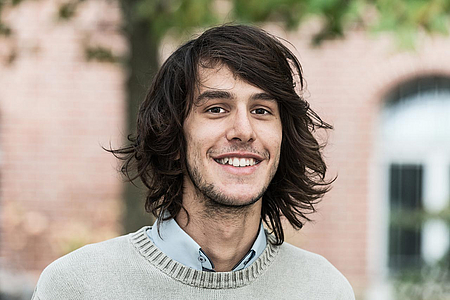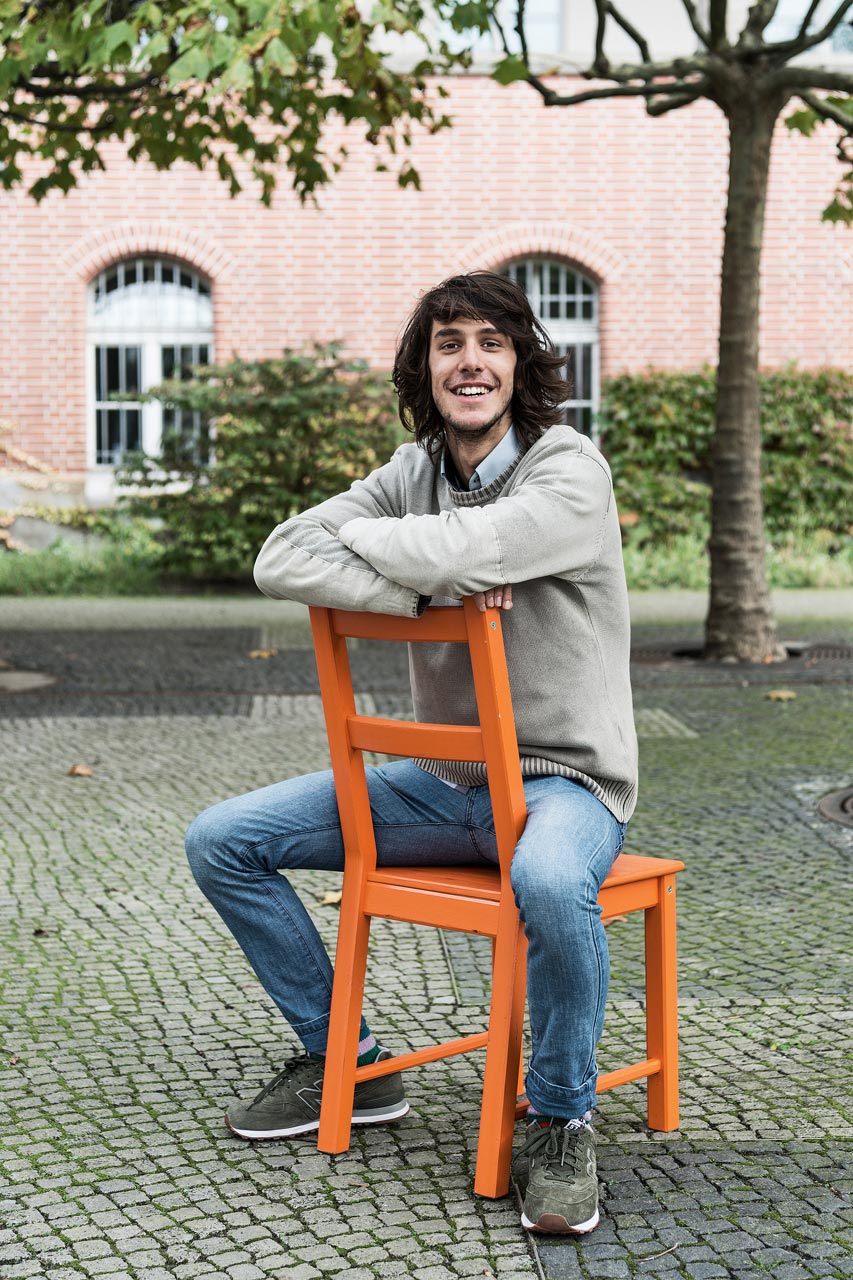On taking the plunge into cold water
Stanislav Rosnev‘s element is water. In 2017, he took part in an open-water swimming marathon, for a distance of five kilometres in water rather than 42. In Istanbul, he also swam in a swimming marathon from Asia to Europe in 2013 – and thus officially became a transcontinental swimmer. However, the 23-year-old didn’t leave his native Bulgaria for Berlin to swim, but to study medicine at the Charité. If he isn’t jumping into cold water, he’s probably sitting in the auditorium or working at the hospital, where, despite his time-consuming studies, he also does night duty for 40 to 60 hours a month.
It wasn’t always clear to Stanislav Rosnev that he wanted to be a doctor, as he has many different interests. Apart from that, he’s very critical of himself and often questions his own decisions. Which makes it all the more impressive that he’s still extremely content with his choice of study. Stanislav Rosnev is inspired by the New Revised Medical Curriculum at the Charité, as it enables contact with patients right from the start.
In Bulgaria, Stanislav Rosnev attended a German-speaking grammar school. It was not uncommon for graduates of that school to go to study in Germany. His brother also studied in Germany, as well as most of his schoolmates. However, many of his Bulgarian friends are planning to return to Bulgaria later on. Stanislav Rosnev would be glad if, thanks to the work experience he has gathered in Germany, he could also help to improve conditions in his homeland in the future.
When you ask Stanislav Rosnev about his role models, it becomes clear how close to his heart cross-border medicine lies. Full of enthusiasm, he describes how the American Harvard Professor Paul Farmer played a leading role in building up the health system in Haiti. In addition to his dedicated work to prevent multi-resistant tuberculosis, he also campaigned for more people to have access to medical care. “I wanted to print out a photograph of him and pin it to my desk so I can see him every day,” says Rosnev, half-jokingly. There's no doubt that working in a humanitarian aid organization would suit his open-hearted, dedicated character that jumps out at you when you talk to him.
Stanislav Rosnev already completed a clinical traineeship in India. In a small town, he experienced the conditions in which doctors work in many parts of the world: “There was only one doctor in the hospital. He lived on the top floor of the hospital and had to work from Monday to Sunday. Things happened there that would never happen here.” Clearly upset, he tells how he had to watch infants die due to complications and diseases which would have been avoidable under other circumstances.
However, he also adds that the medical care in some Indian cities is probably comparable to that in Berlin. He also supports the organization Treatment without Borders in Berlin. It helps patients who come to Germany to be treated using methods that aren’t available in their homeland. Volunteers from Treatment without Borders give them assistance on the spot.
The extent to which he will follow in the footsteps of Paul Farmer will depend on, among other factors, his decisions in the next few years.

Funding program
Deutschlandstipendium
Funding period
Since 2015
Research area
Human medicine
Institution
Charité – Universitätsmedizin Berlin
2018
Semester abroad at the University of Zurich (CH) and summer school in tropical medicine and global health at the University of Copenhagen; start of PhD in the working group of Prof. Dr. med. Il-Kang Na at the Berlin-Brandenburg Center for Regenerative Therapies (BCRT)
Since 2017
Student assistant at the Institute of Medical Genetics and Human Genetics, Charité – Universitätsmedizin Berlin
Since 2013
Medical degree at the Charité – Universitätsmedizin Berlin, since 2015 volunteer at “Treatment without Borders“
One field that currently interests him is infectiology – which would no doubt be very practical for missions with Doctors without Borders. Yet science, and particularly oncology, fascinate him too. The close contact with scientists at the Charité inspires Stanislav Rosnev. He can well imagine writing an experimental doctoral thesis. This isn’t a must in medicine, nor is it the rule – because, as Rosnev explains: “You have to be really motivated and invest a great deal of time.” He would like to take a few semesters off to work in the laboratory. He says that the Deutschlandstipendium grant makes it possible for him to manage without financial support from his family. So now he can even save some money for an upcoming exchange semester.
It’s natural to feel curious as to the direction in which his career will take him. You can immediately believe that Stanislav Rosnev will open the first floating, transcontinental medical practice. Yet he also radiates the calm and patience that are needed to endure nerve-wracking experiment series in the lab.
October 2017 / MM
